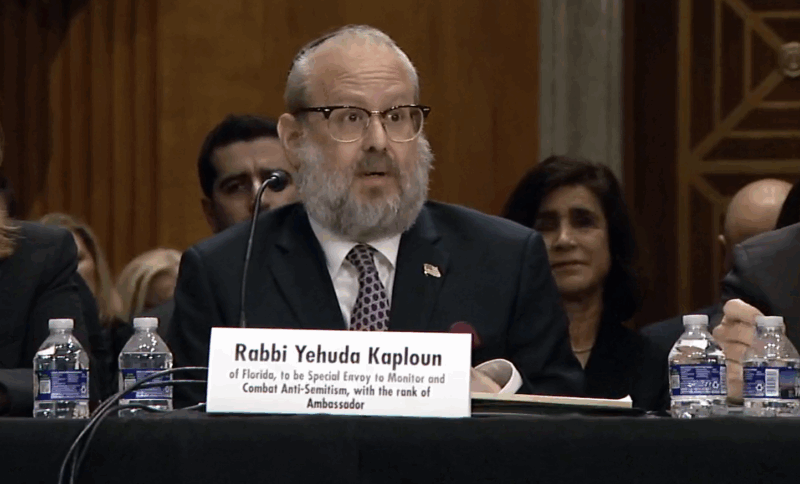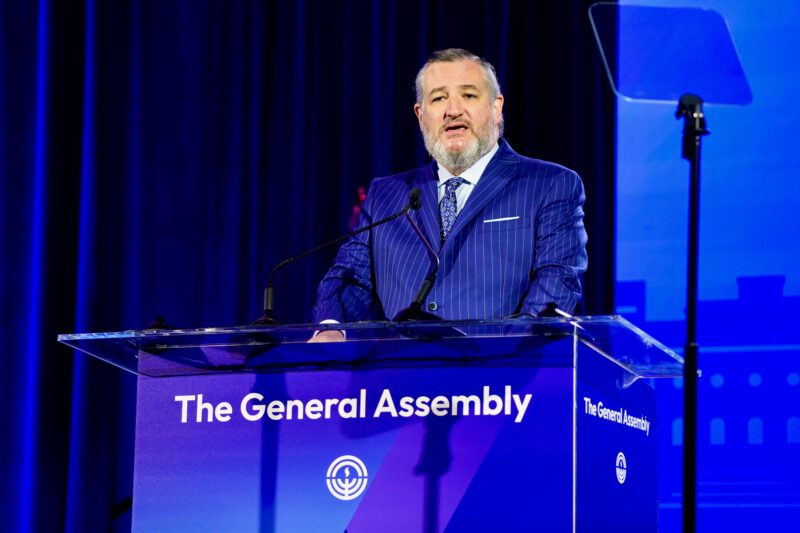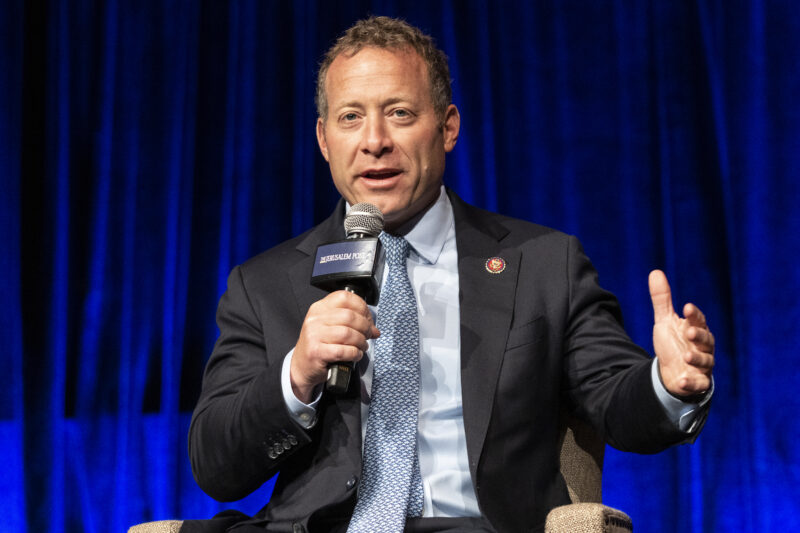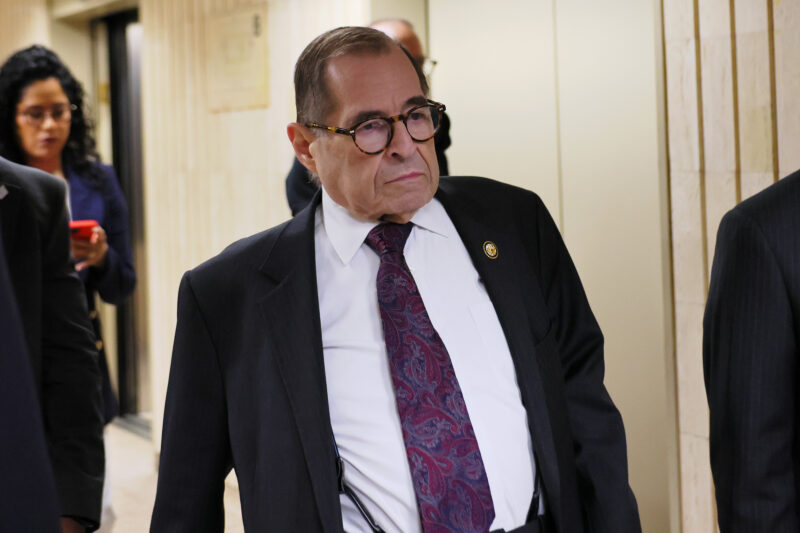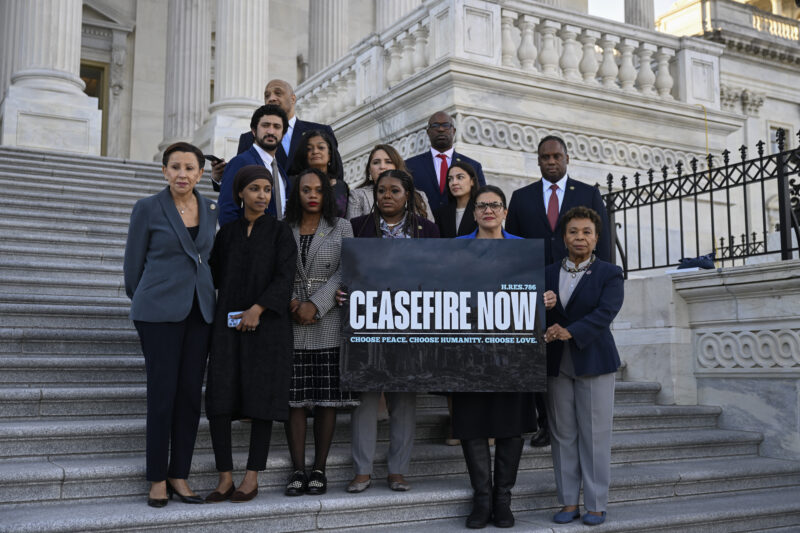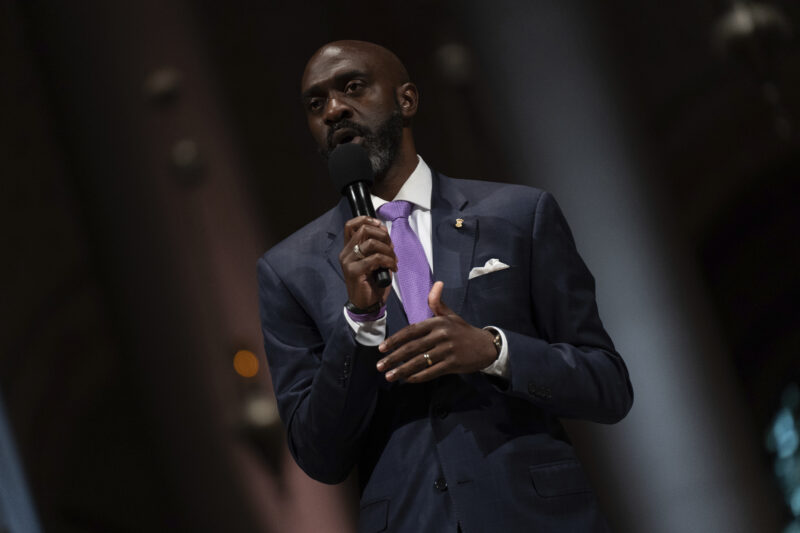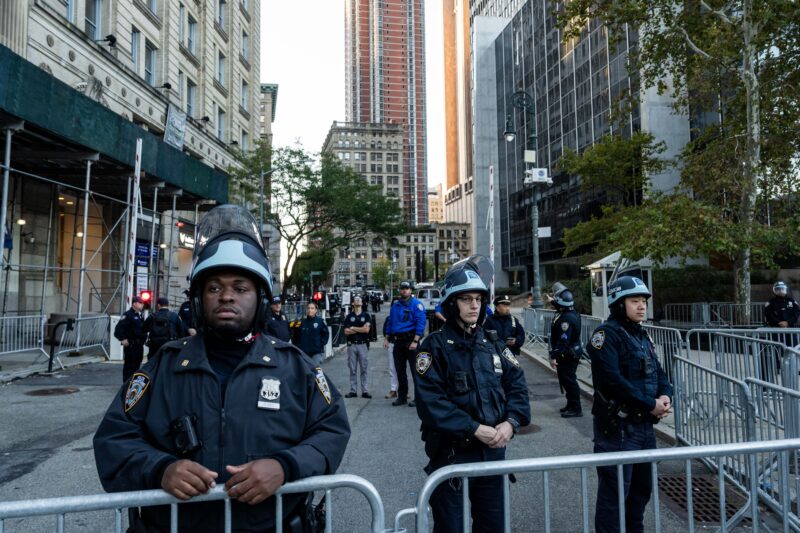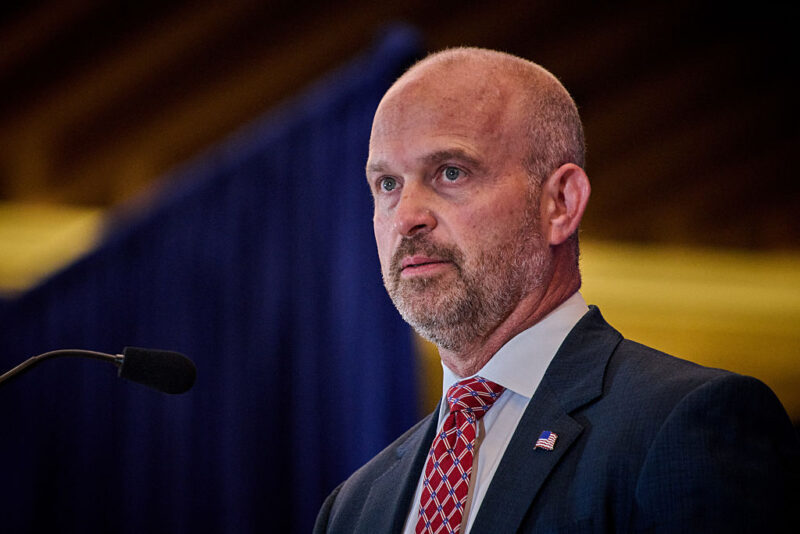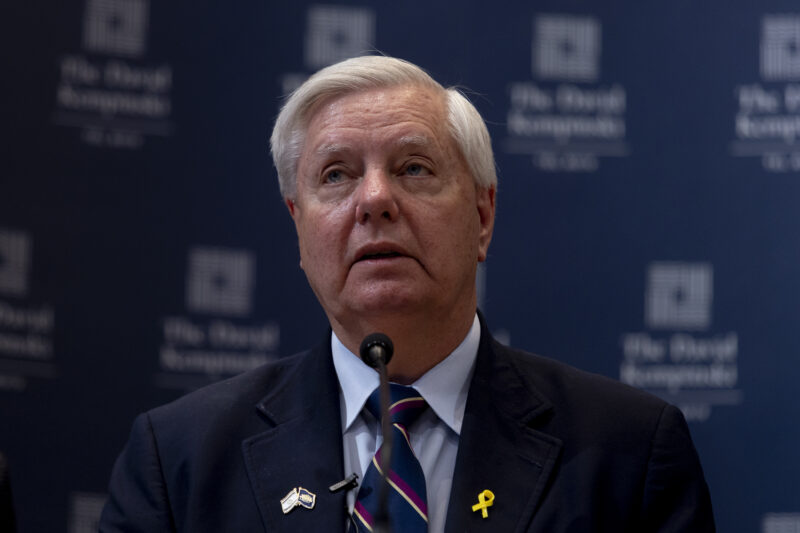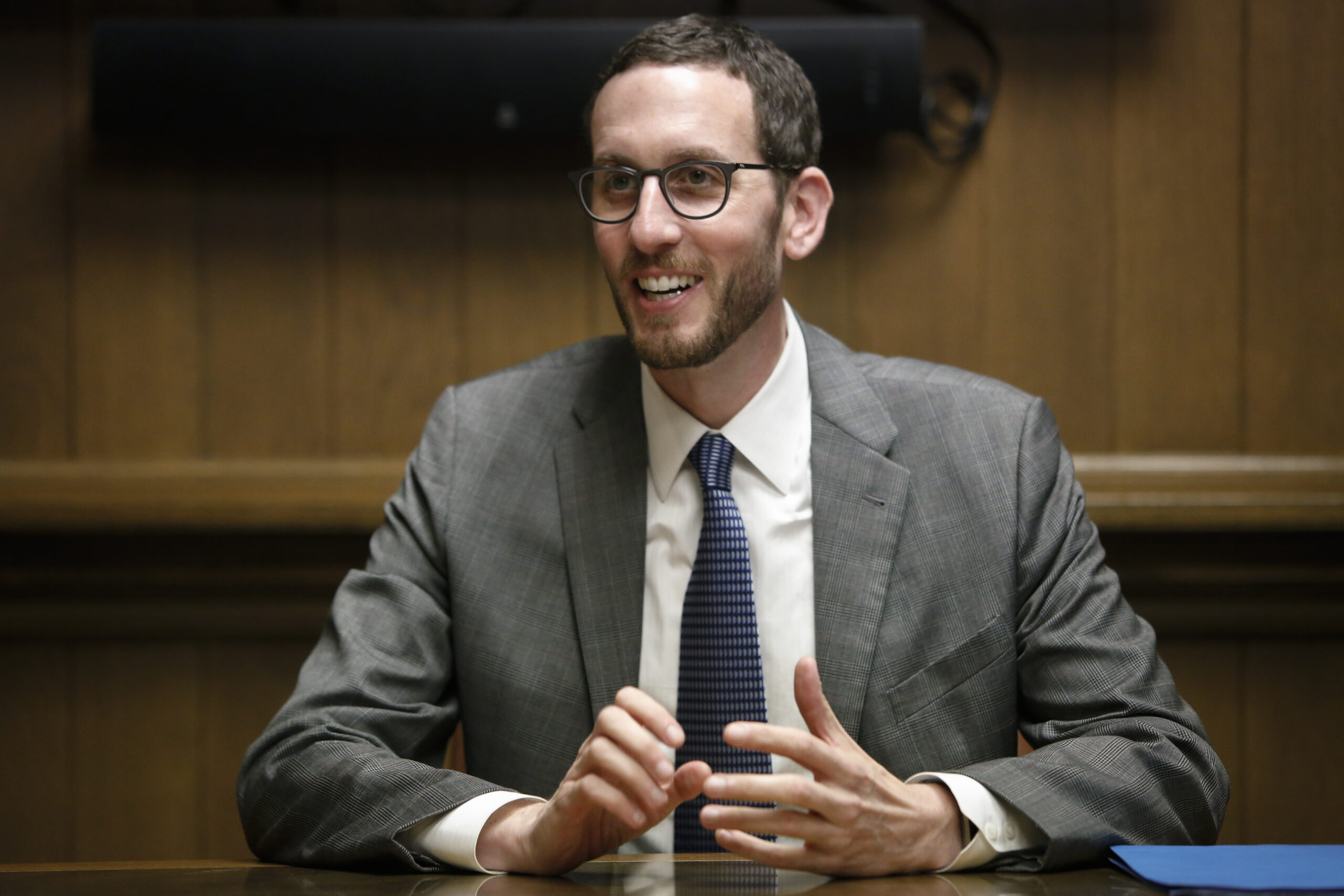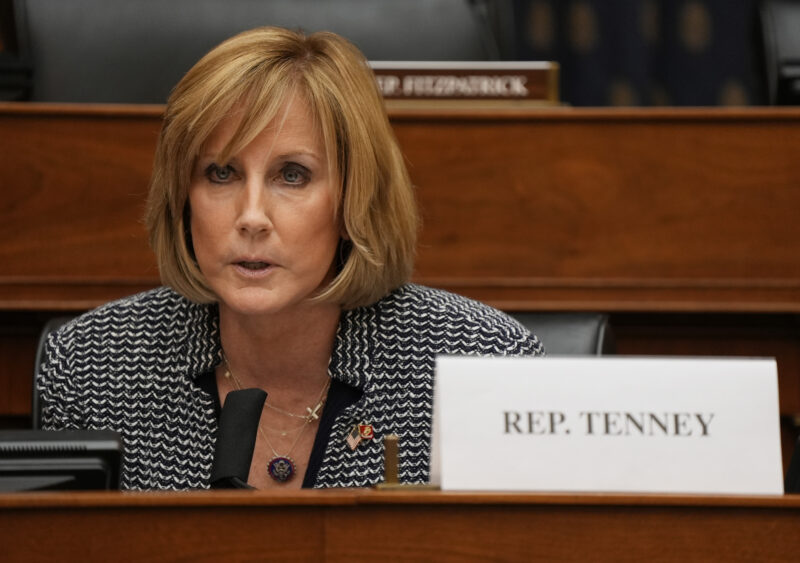OCR nominee says Department of Education could issue new regulation on campus antisemitism
Kim Richey said that Title VI regulations could be amended ‘to specially address antisemitism … in a post Oct. 7 world’

Screenshot: C-SPAN
Kimberly Richey
Kimberly Richey, the nominee to be the assistant secretary of education for civil rights, said that the Department of Education should look at amending Title VI regulations and issuing new guidance to address the surge of antisemitism on campuses nationwide since the Oct. 7, 2023, Hamas attacks on Israel.
Richey, speaking at a confirmation hearing on Thursday before the Senate Health, Education, Labor and Pensions Committee, said that regulations could be amended “to specifically address antisemitism,” and the Department of Education could issue new guidance “in a post-Oct. 7 world. The climate is very different than what it was five years ago, four years ago, three years ago.”
Currently, antisemitic discrimination is considered a violation of Title VI of the Civil Rights Act as a form of discrimination based on shared ancestry, under an executive order from the first Trump administration. Enacting a formal regulation would give further force of law to the issue.
The Biden administration had been expected to issue a regulation providing further guidance around that executive order by December 2024.
Richey said she would also partner with other offices within the Department of Education to enforce civil rights laws to further protect Jewish students.
The nominee described the recent antisemitic terror attacks in Boulder, Colo., and Washington as “emblematic of the horrific acts that the Jewish students are facing across the country,” and praised the actions the Trump administration has taken thus far.
She said that she believes the antisemitic environment on campus has gotten worse than it was when she first served in the Office for Civil Rights in the early 2000s, during the George W. Bush administration, having evolved into threats, violence and exclusion targeting Jewish students.
Richey, pressed by Democrats about the administration’s decision to cut half of OCR’s staff and more than half of its regional offices, said she couldn’t speak to the decisions previously and currently being made but said she is “always going to advocate for OCR to have the resources that it needs to do its job.”
“I’m going to have to be really strategic … helping to come up with a plan where we can address these challenges,” Richey said.
Sen. Tammy Baldwin (D-WI) said the Department of Education recently informed the committee that, as of earlier this year, OCR had a backlog of 25,000 cases.
Asked about efforts to reorganize and shut down the Department of Education, including transferring OCR to the Department of Justice, Richey said that “the current structure is not meeting the needs of students … so what I appreciate and what I agree with is the conversation for us to stop and look at, how can we better meet the needs of students? How can we better serve families?”
She emphasized that she has a long history in OCR, having served in the office for almost seven years under previous administrations, and said that she understands “the vital role it plays for so many students and families across our great nation. Students cannot gain the knowledge and skills they need to be successful in life if they can’t access educational programs and activities.”
In addition to her service in the Bush administration, Richey served as acting assistant secretary of education for civil rights in 2020 and 2021.
“If I’m confirmed, the department will not stand idly by while Jewish students are attacked and discriminated against,” Richey said.
Kenneth Marcus, the founder of the Brandeis Center for Human Rights Under Law who served as assistant secretary of education for civil rights under the first Trump administration, said he was pleased that Richey had raised the prospect of formal and informal guidance, as well as a Title VI regulation, which he noted would be “the first ever formal Title VI regulation on antisemitism.”
He explained that a Title VI regulation would “be important for giving durability, not only to the government’s use of [the International Holocaust Remembrance Alliance’s working definition of antisemitism], but also to the fundamental notion that Jewish civil rights are protected under Title VI. That’s something that doesn’t yet have the status of a formal regulation, which is why federal agencies have been promising for the last several years to issue a regulation.”
He said that a regulation might go further than the original executive order issued in the first Trump administration declaring that antisemitism is a prohibited form of discrimination, and could cover issues like masking, encampments and the ways that Zionism has been used as a euphemism for Jews.
“Kim Richey was passionate and eloquent in describing how the world has changed since Oct. 7, 2023 in ways that need to be addressed by the federal government,” Marcus said. “She appropriately noted the forcefulness of the Trump administration’s response to date, but it also candidly indicated that more needs to be done, and I think that she was 100% right about that.”
























